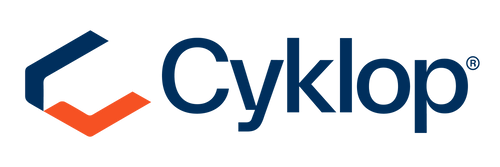Industrial Ink Marking Systems: A Sustainable Green Option | InkJet, Inc.
Every year, it seems that consumer buying habits are increasingly influenced by manufacturer sustainability. With environmental reports periodically appearing in the news, social media feeds, and across popular culture in general, studies show that nearly all age groups have started making more eco-friendly choices when buying products from all industries.
For example, a recent report from professional service giant PwC reveals that more than half of consumers aged between 23 and 56 states that they:
- Choose products with traceable and transparent origins.
- Buy from companies that actively support environmental protections.
- Purchase products made with eco-friendly packaging (e.g., TetraPak).
- Seek out biodegradable products.
- Scan labels for information regarding sustainability practices.
Many market researchers have dubbed this increased preference for sustainable products “eco-friendly consumerism” and have noted that it most commonly affects food manufacturing groups, beverage packaging companies, and consumer goods developers.
With eco-friendly consumerism on the rise, many businesses are answering the demand for sustainability by reevaluating their day-to-day operations and packaging habits. In the industrial coding field, companies like InkJet, Inc. have supported this shift by offering products that help companies become more green by maximizing material usage and minimizing waste.
Here’s how today’s industrial ink marking systems are helping companies improve their overall sustainability.
Replace Mineral Oil-Based Inks
In recent years, there has been significant concern regarding the use of mineral oil-based ink formulas on product packaging. The controversy arises from how mineral oil-based inks have the potential to contaminate food and beverages via ink migration. In the early 2010s, for instance, European researchers discovered that food products packaged in mineral oil-ink-covered cardboard were likely to contain mineral oil levels that exceeded acceptable standards set by the World Health Organization (WHO).
Numerous studies have drawn lines between excessive mineral oil consumption and various health concerns. Looking towards the WHO’s 2012 food additive evaluation report, research shows that large doses of mineral oil can lead to:
- Compromised immune system
- Kidney problems
- Swelling of the liver, lymph nodes, and spleen
Beyond these health issues, environmental groups have also voiced concerns on how paper, cardboard, and flexible packaging marked with mineral oil-based increase pollution, both during the printing process and during waste management. As a result, the European Union has officially recommended that organizations not use mineral oil-based inks during production.
The industrial coding market has responded to these developments by offering alternatives to mineral oil-based inks. Water-based inks, vegetable oil-based inks, and others enable companies to continue marking their products without fear of inadvertently contaminating their products or damaging the environment.
Minimize Waste by Replacing Physical Labels
While mineral oil-free inks help companies reduce the risk of potentially harming the environment with their packaging waste, today’s industrial ink marking systems take this concept further by helping to minimize waste overall. After all, one of the most effective ways to minimize production waste is to replace adhesive labeling with direct product marking.
Across industries, companies often use individual adhesive labels to comply with supply chain traceability requirements. Throughout the food/beverage manufacturing and pharmaceutical fields, for instance, businesses are often required to mark their products with a variety of codes to enable complete tracking across the distribution network. These codes often include:
- Barcodes
- Serial numbers
- Batch codes
Initially, one may not see labels as a significant source of waste. However, the waste potential of physical labels exponentially increases alongside company growth. When an operation is applying thousands (or tens of thousands) of physical labels per day, the discarded backings become a substantial source of continual waste. Further, the TTO ribbons commonly used to mark label materials are inherently wasteful because once the ink is used up, the rest of the ribbon ends up in a landfill.
Instead of continually producing endless amounts of physical labels, companies can become more sustainable by turning towards direct product marking. Industrial ink marking systems like continuous inkjet printers and thermal inkjet printers are able to print highly legible codes and text on a variety of porous and non-porous materials.
Additionally, high-resolution case coding printers can mark machine-scannable codes and sharp images on shipping cartons, further reducing the need for wasteful physical labels.
Want to Improve Sustainability? Our Industrial Ink Marking Systems Can Help
Today’s printing hardware empowers manufacturers of all sectors to improve their overall sustainability. By choosing to mark product packaging with eco-friendly inks, companies can help minimize potential risks to both consumer health and the environment at large. Further, industrial marking hardware like CIJ and TIJ printers allow businesses to reduce their need for adhesive physical labels, lowering their levels of produced waste.
If you’re looking to bring these benefits to your business, InkJet, Inc. is here to help. With a range of top-shelf marking solutions and a diverse ink portfolio, our product offerings can help you lower your company’s environmental impact without sacrificing uptime or packaging quality. Call InkJet, Inc. today to get started.
To learn more about the relationship between industrial ink marking systems and sustainability, contact InkJet, Inc. online or by phone at 1(800) 280-3245.



